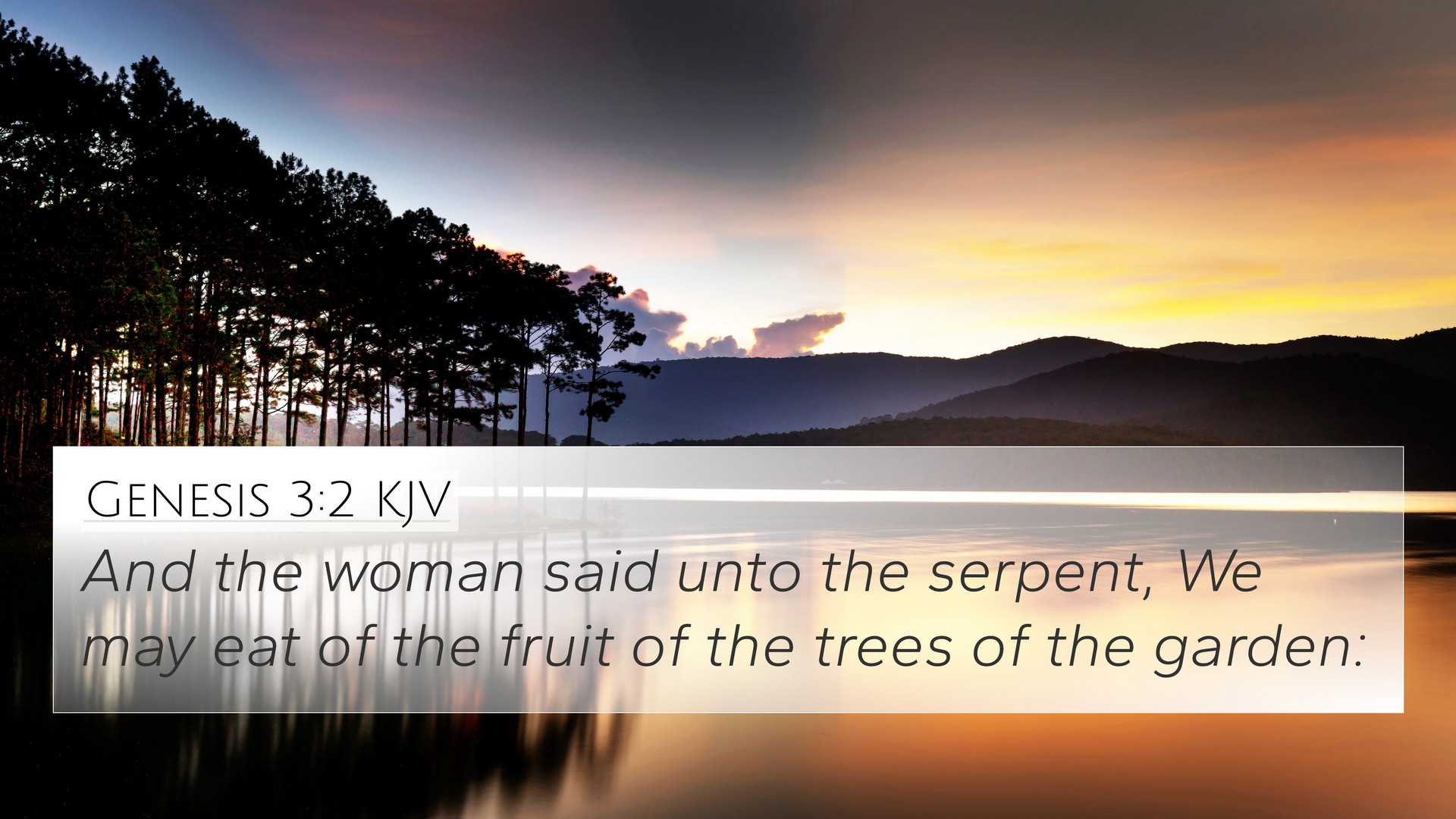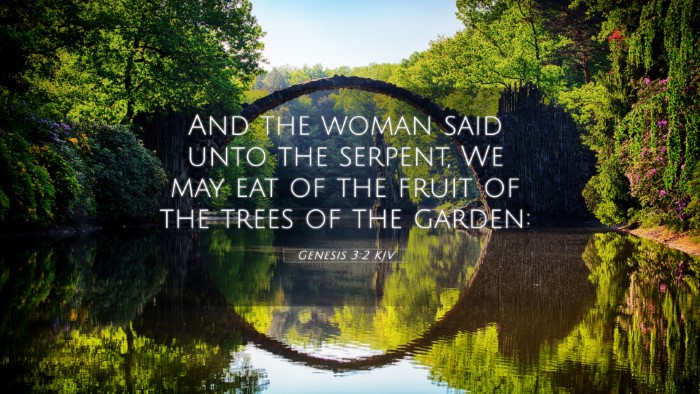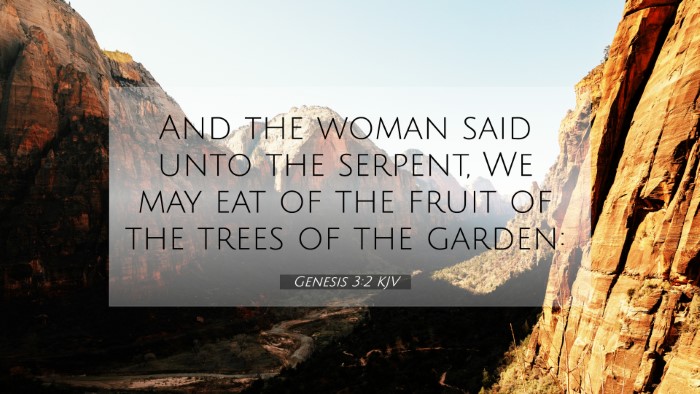Understanding Genesis 3:2
Genesis 3:2 states: "And the woman said to the serpent, ‘We may eat the fruit of the trees of the garden.’" This verse introduces the dialogue between Eve and the serpent, which serves as a critical moment in the biblical narrative concerning temptation and disobedience. By examining this verse through the lenses provided by public domain commentaries, we can gain a deeper understanding of its implications.
Commentary Insights
- Matthew Henry: He emphasizes the significance of Eve's response, noting that her mention of the "trees of the garden" sets the stage for the serpent's deceit. Henry suggests that Eve acknowledges God's provision, indicating her awareness of the blessings within the garden, but the dialogue could lead to confusion and manipulation.
- Albert Barnes: Barnes points out that Eve's statement reflects a typical conversation about boundaries set by God regarding eating. He notes that her clarification of the tree suggests a deeper understanding of God's commandments, yet hints at the impending temptation that creates doubt in God's word.
- Adam Clarke: Clarke discusses how Eve's acknowledgment of permissible food contrasts sharply with the singular prohibition. This distinction serves as a foreshadowing of the challenge that she will face in understanding and adhering to God's command. Clarke believes that Eve's statement reveals her initial obedience, though it remains precarious.
Bible Verse Cross-References
The following verses relate closely to Genesis 3:2 and shed further light through Bible verse cross-references:
- Genesis 2:16-17: The Lord commands Adam regarding the trees in the garden.
- Deuteronomy 4:2: A warning against adding or taking away from God's words.
- James 1:14: A discussion on temptation being drawn away by one's desires.
- 1 John 2:16: Referring to the lust of the flesh and the desires that lead to sin.
- Romans 5:12: The connection between Adam's sin and the entrance of death into the world.
- 2 Corinthians 11:3: Paul warns about being deceived like Eve was by the serpent.
- Matthew 4:1-4: Jesus rebuffs temptation, paralleling the testing Eve faced.
Exploration of Themes
Genesis 3:2 demonstrates vital themes that echo throughout Scripture and emphasizes connections between Bible verses:
- Thematic Bible verse connections: The significance of God’s commands and human responses.
- Comparative Bible verse analysis: Analyzing Eve's response to the serpent compared to Christ's response to temptation.
- Inter-Biblical dialogue: Drawing links from Genesis to the teachings of Jesus about obedience and temptation.
Understanding Through Cross-Referencing
The method of cross-referencing Biblical texts reveals a comprehensive understanding of how early narratives influence later teachings. By utilizing tools such as a Bible concordance, one can uncover these connections effectively.
Using Cross-References for Study
To deepen your analysis of Genesis 3:2, consider the following strategies:
- Use a Bible cross-reference guide to explore related themes.
- Engage in cross-reference Bible study by mapping themes of temptation and obedience.
- Look into Bible chain references to follow the narrative arc from Genesis to New Testament teachings.
Prayerful Reflection
As you study this verse, remember that prayer and reflection can aid your understanding. Ask God for wisdom to discern not only the text but also its implications for your life today.
Conclusion
The exchange in Genesis 3:2 is much more than a simple conversation; it is foundational in understanding human nature, temptation, and God's commands. By exploring Bible verses that relate to each other and leveraging cross-referencing Bible study methods, we can gain insights that continue to inform and shape our spiritual journeys.



